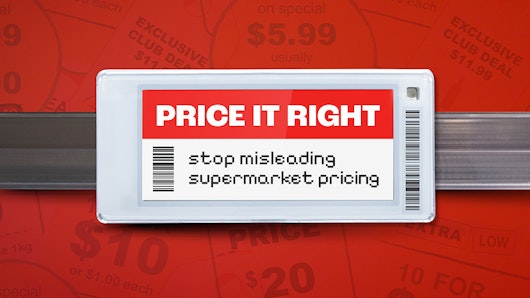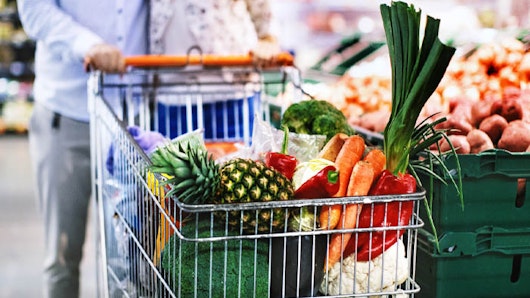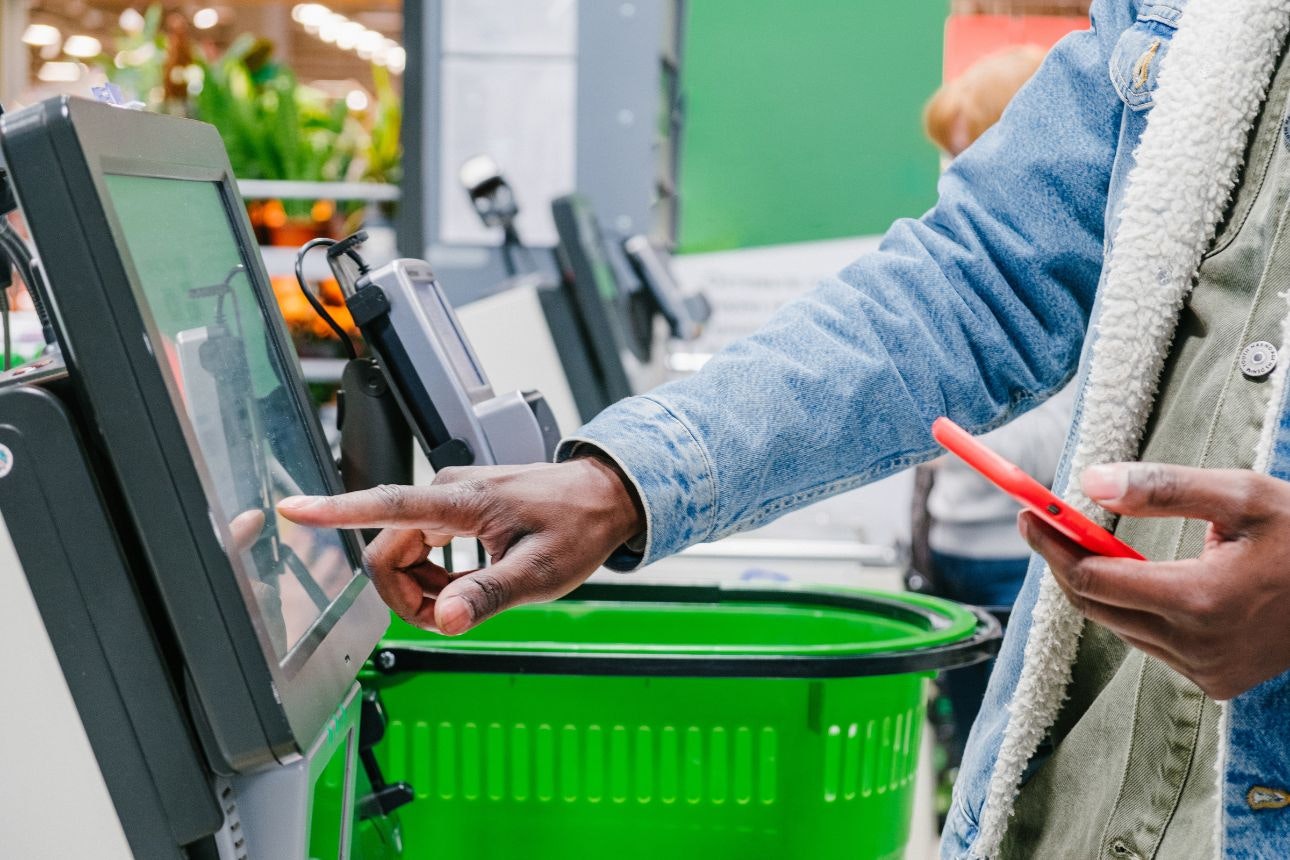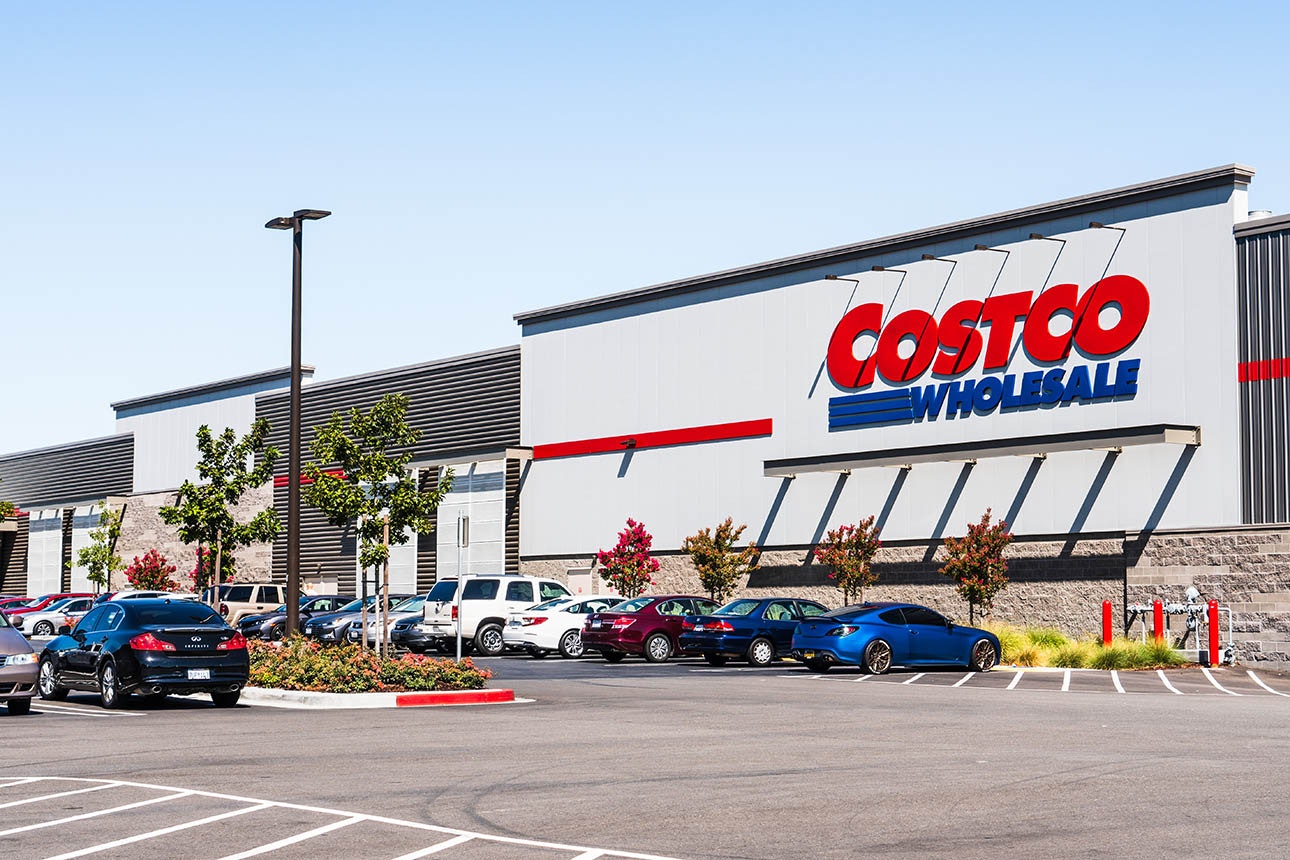
By Chris Schulz
Investigative Journalist | Kaipūrongo Whakatewhatewha
Standing in the middle of my local supermarket recently – a Countdown in West Auckland that's yet to receive its expensive Woolworths makeover – I did what many shoppers do: I lost my mind.

I was flummoxed, overwhelmed, hypnotised by the bright colours, the large words and the huge signs. So many savings were being promised if only I bought two of these, or three of these, or four of those. 25%! 33%! 40%! The promises never seemed to end.
So, I completely forgot what I’d gone there to do.
Everyone knows the feeling I'm talking about. You look around, hoping for inspiration that never comes. Why am I here? Toothpaste? Toilet paper? Snacks? Dinner? Suddenly, there were many more things in my trolley than I ever came to get.
Following my supermarket-mind-blank experience, I spoke to Ekant Veer, a professor of marketing at the University of Canterbury. Invoking that stupor is exactly what supermarkets are designed to do, Veer says.
He calls my experience "cognitive overload", a process that uses extreme stimulation to erode your willpower so your decision-making can be influenced, much like in a casino.
"That amount of information just wears you down so much that you end up confused," he explains. "That's what supermarkets play on ... It gets you to buy those things that they know are going to make them high gross profits."
Debunking the special myth
When you enter a supermarket these days, huge sales signs hang everywhere. It's a strategy that plays on the vulnerability of desperate shoppers as they continue to battle a cost-of-living crisis.
Yet Consumer surveys have found specials often aren’t that special at all, with discounted products often available cheaper elsewhere just by shopping around.
Things only get worse when you reach the shelves. Supermarkets often have three pricing tiers: the everyday prices, the weekly specials, and the membership offers for those who have signed up to their loyalty programmes.
That's a lot of information to process.
Trying to choose a bag of coffee recently, I was tasked with deciphering a supermarket shelf that looked like this.

There are white stickers, yellow stickers and orange stickers, all indicating different layers of specials, including those restricted to members of Woolworths’ loyalty programme, Everyday Rewards.
Consumer has spoken out against loyalty cards in the past. “We think linking access to discounts to the mandatory collection of personal information is unfair and penalises consumers unwilling to trade their privacy to increase industry profits,” chief executive Jon Duffy said.
To choose my bag of coffee, it would have taken me several minutes to analyse every brand with every special, then weigh up the different prices to make an informed decision.
It would have taken several more minutes to use the internet, or a price comparison app like Grocer.nz, to compare those prices against those being offered at other supermarkets.
But who has time to do that for every item you’re putting in your trolley? Suddenly, a quick trip to the supermarket becomes a torturous, brain-busting exercise.
Sommer Kapitan, Veer's peer at the Auckland University of Technology, recently told me it’s impossible for an average consumer to navigate their way through all that advertising and marketing.
"We've lost our confidence about what the prices are,” she says. “You're seeing so much you can't make a proper decision."
Supermarkets take advantage of this confusion. Items are discounted all of the time, making it impossible to know what something really should cost.
As Kapitan told me, “You can’t tell if that's a good price or not.”
Exit the specials
There's a simple way to fix this.
We could ban supermarkets from running specials.
No more signs. No more advertising. No more marketing. No more bamboozlement as soon as you walk through the doors.
That way, the price is the price, always.
It would make comparisons easier. It would stop the brain-boggling homework. It may raise competition. Suppliers would no longer have to soak up lower prices caused by all those specials. It would definitely lower shoppers’ confusion.
It’s not without precedent. From March, 2023, France banned buy-one-get-one-free specials, as well as supermarket discounts of more than 34%.
“Many have praised the recent law for encouraging price transparency, allowing customers to compare the real prices of products when they shop, instead of getting a false sense of low-priced items that only large corporations can afford to put on the shelves,” reported Euro News at the time.

Make supermarkets price it right
Find out about our campaign to tell the government we need clear rules, stronger penalties and automatic compensation for shoppers.
And enter lower prices
Food prices have come down slightly since their record high in June, 2023, with Stats NZ reporting a 0.3 decrease between then and June, 2024.
Yet Stats NZ also says that is the first time food prices have come down in six years. And a World Vision survey, released in February, showed the price of common items like oil, chicken, bananas, eggs, rice and tomatoes, had grown by more than 50% over the previous year.
Our own sentiment tracker data from April shows the cost of food and groceries is the number one financial concern among every age group we measure. Yet the Commerce Commission reports supermarkets are making more than $1 million a day in excess profits.
Consumers are desperate for lower prices. Suppliers are screaming for help. A grocery commissioner has been hired but is yet to force any kind of meaningful change. More competition could deliver lower prices, but a planned merger between Foodstuffs North Island and Foodstuffs South Island could make things worse.
We’re desperate for more competition, and that could be coming. In August, unit pricing regulations will be enforced, allowing shoppers to accurately compare the price of products regardless of size, brand or specials.
Recently, a pivot by The Warehouse into a full-scale grocery chain has been mooted as a potential saviour for the struggling retail giant. Yet, as the demise of online-only grocer Supie earlier in the year showed, even if you get the model right, success is far from guaranteed.
Change could be years away.
Or it could be much sooner.
Just ban the specials. We’re being forced to navigate a world where 40%-off discounts aren’t an amazing one-off deal, they’re a daily occurrence, even when analysis shows those discounts often aren’t actually that good, can be restricted to loyalty programmes, and, importantly, mask the fact that prices just keep going up.
Only by calling out this behaviour can we make it stop. Just once, I’d love my weekly supermarket shop to stop being a brain-breaking, wallet-busting exercise and instead return to its rightful place: a weekly chore that just needs to be done.

How to save money at the supermarket with unit pricing
Our guide to unit pricing and how the small print can help you save big.


